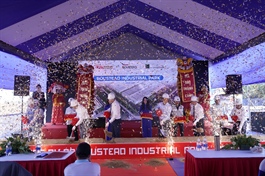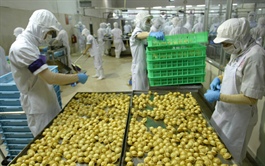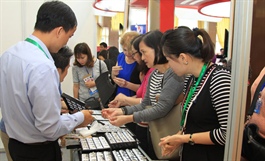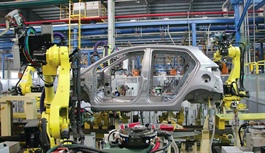BASF commits to targets for boosting sustainable agriculture
BASF commits to targets for boosting sustainable agriculture
BASF has committed to clear and measurable targets to boost sustainable agriculture by 2030.
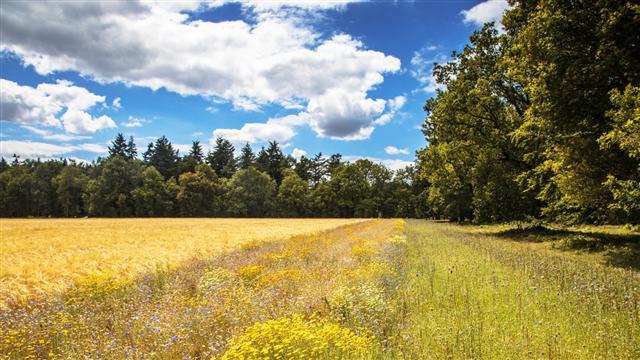
BASF has drawn up ambitious targets for sustainable agriculture by 2030
|
Focusing on the biggest levers that will make agriculture more sustainable and contribute to the most pressing needs of society, the company will help farmers achieve a 30 per cent reduction in CO2 emissions per tonne of crop produced.
BASF’s Agricultural Solutions division will also annually increase its sales share of solutions with a substantial sustainability contribution in the value chain by 7 per cent. In addition, BASF will bring digital technologies to more than 400 million hectares of farmland and continue to ensure the safe use of its products with the right stewardship. The new commitments are further strengthening the implementation of BASF’s strategy in agriculture that was launched in 2019.
“Farming is fundamental to the world’s wellbeing. Over the coming decades, our agricultural food system will undergo an accelerated transformation to provide access to enough healthy and affordable food for a growing world population.
At the same time, we will need to mitigate its impact on our planet. This transformation is driven by the call for better yield – yield produced in ways that are recognised as valuable by society, are kind to the planet, and help farmers earn a living,” said Vincent Gros, president of BASF’s Agricultural Solutions division. “With our connected offers, we support farmers around the globe in doing the biggest job on earth to jointly create a positive impact on the agricultural food system.”
Climate smart farming
BASF will support farmers to become more carbon efficient and resilient to volatile weather conditions with technologies that increase yield, make farm management more effective, and decrease environmental impact. These include:
· Nitrogen management products such as Vibelsol and Vizura that reduce greenhouse gas emissions;
· Crop protection products such as the herbicide Kixor that enable farmers to grow crops without plowing, reducing CO2 emissions from the soil and diesel use;
· New crop varieties such as InVigor canola seeds providing higher yield stability especially under more severe weather conditions;
· Biological inoculants and innovative digital solutions.
At the same time, the company is exploring ways to help incentivise CO2 efficiency and open new value streams for farmers. With these products and solutions, BASF will help achieve a 30 per cent reduction in CO2 emissions per tonne of crop produced.
Sustainable solutions
It is BASF’s goal to increase the number of sustainable solutions it brings to farmers year by year. Therefore, the company is continuously investing in its strong R&D pipeline steered systematically by sustainability criteria. BASF’s R&D pipeline contains solutions that support the efficient use of resources and reduce the environmental footprint. Examples are:
· Solutions based on the fungicide Revysol that enable an increase in wheat yields by 4 per cent on existing land, allowing the farmer to protect the natural habitat;
· Targeted application of BioSolutions, such as RAK pheromones, that disrupt the mating of certain moths, protecting plants throughout their life cycle as natural partners that complement conventional crop protection;
· Breeding innovations such as the mini watermelon Pingo Doce that makes it easier for consumers to avoid food waste.
In addition, BASF assesses its entire product portfolio against clearly defined and third-party validated sustainability criteria with the Sustainable Solution Steering method. BASF’s Agricultural Solutions division will contribute significantly to the BASF Group target of €22 billion ($26.1 billion) in sales by 2025 with Accelerator products that make a substantial sustainability contribution in the value chain. The Agricultural Solutions division aims to annually increase its sales share of solutions with substantial contribution to sustainability by 7 per cent.
Digital farming
Digitalisation can make agriculture more resource-efficient, inclusive, and sustainable. Therefore, BASF will help farmers with digital tools to grow their businesses profitably, while reducing their environmental footprint. Using digital technologies allows farmers to produce more with less, to make farming processes more efficient from field monitoring to the food supply chain.
BASF’s xarvio digital products enable more precise application of crop protection products, nutrient management, automated buffer zones, and monitoring of biodiversity. Digital tools also have the capacity to reach vast numbers of farmers, including those in less developed countries, thereby increasing knowledge and raising awareness of on-farm sustainability. BASF aims to bring digital technologies to more than 400 million ha of farmland cumulatively by 2030.
Smart stewardship
BASF takes its commitment to safety for human health and the environment very seriously, offering right stewardship with every product to ensure the safe use of its products around the farm and in the field. The company provides access to stewardship tools and services that are tailored to every farmer’s daily work. These include protective equipment, customised training, digital solutions, and new and future-oriented application technologies such as drones that reduce working time and minimise potential exposure to agrochemicals.
Initiatives using drones have already been launched in China and Colombia. Another example of BASF’s continuous efforts to make the handling of crop protection products easier and safer is the closed-transfer-system easyconnect. It was developed with partners and is supported by key players in the agricultural industry with first market launches expected from 2021/2022.










